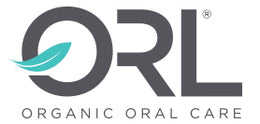Chances are, you gave your teeth an acid bath this morning. It’s not difficult to tip the scales. Your morning cup of coffee, for example, has a pH of about 5.0, and citrus fruits tend to sit around 2.3-5.0. If you’re using a traditional mouthwash, it might have lowered your pH too. All sorts of things are conspiring against you to create an acidic environment in your mouth. That’s a problem because your mouth is happier and healthier when it’s balanced; closer to a neutral 7.0 pH.
The good news is, even if you can’t sustain a 7.0 pH all day, there’s still benefit from getting it there a couple times per day, and that’s something you can do with relative ease. But, before we dig into how, let’s explore why you should.
1) Teeth Demineralize in Acidic Environments; Neutralization Stops It
Many people think teeth demineralizing is an expected side-effect of living. That’s not entirely true. Your teeth lose minerals when the pH balance drops into the acidic range. So, although the demineralizing state is common and arguably to be expected at least some of the time, it’s not healthy or good for you. Demineralized teeth become weak. Once they’re weak, tooth decay begins to develop in the demineralized spots.
2) Your Teeth Remineralize Naturally When Balance is Restored
A decayed tooth cannot repair itself. Once a cavity sets in, you do have to see a dentist to have it restored. However, teeth can pick up the minerals from your saliva and either retain their strength or become fortified.
“Saliva acts as a constant source for calcium and phosphate that helps in maintaining supersaturation with respect to tooth minerals, therefore inhibiting tooth demineralization during periods of low pH, and they promote tooth remineralization when the pH returns to neutral state,” explains Biomaterials and Tissue Engineering expert Dr. Ensanya Ali Abou Neel.
3) Your Teeth Are Less Susceptible to Tooth Decay When You Achieve a 7.0 pH
What Dr. Ensanya Ali Abou Neel was saying is that your teeth don’t necessarily need to stay at a perfect 7.0 pH all the time. If you’re getting your oral pH to neutral at least some of the time, the improved strength of your teeth means mineral levels stay high even when pH drops. You will still lose minerals during acidic periods, but your teeth won’t become weakened to the point they’re susceptible to decay, so long as they continue getting windows of neutrality to fortify. Ultimately, this means fewer cavities for you, even if you do enjoy foods and beverages that are acidic.
4) The Right pH Can Keep Bad Breath at Bay
There’s a bit of bad news here for people who have been popping regular mints and chewing sugary gum or using alcohol-based mouthwash to keep their breath fresh. These things actually contribute to the problem.
Ultimately, about 25 percent of the population has persistent bad breath and the most common culprit is bacteria, but not all bacteria are “bad.” Some strains are responsible for things like tooth decay and oral disease, while others are essential for digestion and keep the bad bacteria in check.
Scientific American writer Deborah Franklin explains, “The most effective strategy for beating back bad breath may be more about nurturing helpful bacteria in the mouth than about destroying the offending germs and their by-products.”
There are two reasons why this works. First, bacteria will grow in roughly a 6.5 - 7.0 pH, with some strains even withstanding the harshest 1.0 pH environment. They usually thrive most in a slightly acidic one though. By maintaining an oral environment that’s closer to neutral, or even slightly alkaline, bacteria colonies naturally stay in check. The good bacteria overpower the bad. Fewer odor-causing bacteria means less risk for bad breath. However, it also means you’re not reaching for the things that feed bacteria or annihilate all bacteria and compound the problem.
It’s worth noting, however, that not all “sweets” are bad news for oral health and breath. Some of the most problematic strains can’t digest the sweetener xylitol, and ultimately starve to death when that’s all they’re offered. Xylitol is linked to lots of oral health benefits, so it’s worth integrating into your routine too.
5) Your Oral Ecosystem and Your Whole Body are Healthier
Bacteria form what’s known as biofilm or plaque on your teeth. When it’s left unchecked, it irritates your gums. This early stage of gum disease, or gingivitis, is often marked by symptoms such as inflammation or bleeding when you brush and floss. As the condition progresses, localized infections form and cause issues like bone and tooth loss.
An unbalanced oral pH often serves as a marker of distress. Researchers have found that when oral pH drops to 6.85, the person almost always has advanced gum disease. Yet, a drop in pH isn’t good either. Those who rise to around 7.24 typically have early-stage gum disease.
Clearly, pH is aligned with oral health, but scientists have also linked gum disease with other inflammatory conditions. Experts say it’s associated with everything from diabetes to heart disease. New research links it to osteoporosis, respiratory disease, cancer, and even Alzheimer’s Disease as well. It’s a worry for pregnant women too, as gum disease is linked to poor pregnancy outcomes like premature delivery and low birthweight. Around 75% of expectant mothers experience gingivitis, while roughly half of all people over 30 have some form of gum disease.
ORL Helps You Achieve a Perfect 7.0 pH
These benefits, and the science behind them, is why, when ORL set out to make a fresh line of oral health products, great focus was placed on achieving a perfect 7.0 pH in the formula. Even though your habits will eventually tip the scales again after you brush, creating a harmonious balance, even for a short period of time, has major benefits. To experience the difference for yourself, try our line of oral care products; all mindfully crafted with healthy ingredients such as vitamins, minerals, plant-based essential oils, organic xylitol, and, of course, delivered in a perfect 7.0 pH neutral formula.



